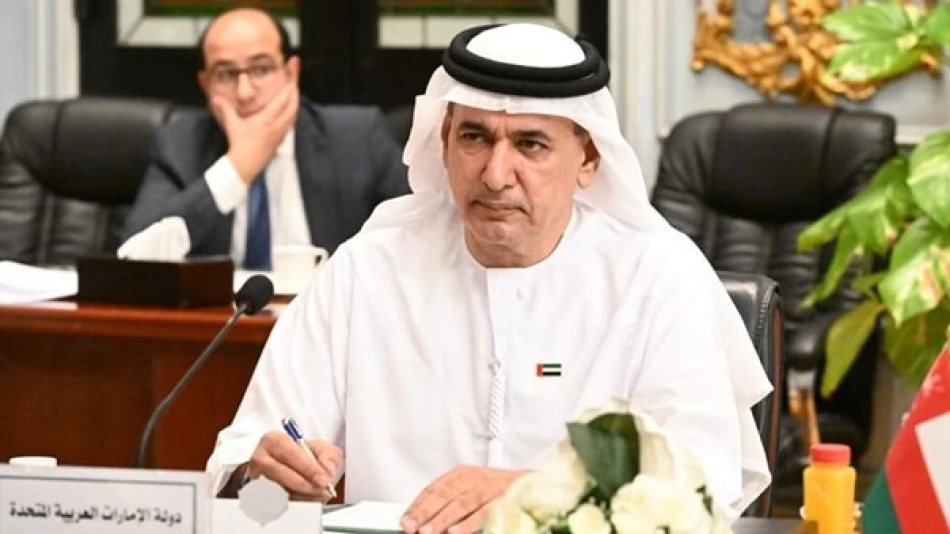
UAE Participates in Arab Parliamentary Union's Diplomatic Committee Meeting
UAE Shapes New Parliamentary Standards as Arab Nations Strengthen Legislative Cooperation
The United Arab Emirates is positioning itself as a key architect of regional parliamentary governance, presenting comprehensive proposals for excellence standards and organizational reforms during a high-level Arab Parliamentary Union meeting in Cairo. The move signals the UAE's growing influence in shaping legislative frameworks across the Arab world at a time when regional cooperation faces mounting geopolitical pressures.
Strategic Parliamentary Diplomacy in Action
During Wednesday's session of the Arab Parliamentary Union's Temporary Diplomatic Committee, held at the Egyptian House of Representatives, Sultan Salem Al Zaabi, a Federal National Council member and Executive Committee representative, outlined the UAE's vision for enhanced parliamentary cooperation. The proposals covered three critical areas: regulatory frameworks for the Arab Parliamentary Excellence Award, amended internal regulations for the Union, and governance structures for the Arab Group within the International Parliamentary Union.
Excellence Standards as Soft Power Tools
The UAE's focus on establishing parliamentary excellence awards reflects a broader strategy of using institutional standards as instruments of regional influence. Similar to how Singapore has leveraged governance benchmarks in Southeast Asia, the UAE appears to be positioning itself as the standard-bearer for legislative best practices in the Arab world. This approach allows smaller but economically powerful nations to exercise outsized influence in regional affairs.
Regional Context and Timing
The timing of these proposals is significant, coming as Arab nations grapple with economic diversification pressures and the need for more effective governance structures. The UAE's parliamentary initiatives mirror its broader diplomatic strategy of building institutional bridges while maintaining political flexibility—a approach that has served it well in navigating complex regional dynamics from the Abraham Accords to its recent rapprochement with various regional actors.
Institutional Architecture for Future Cooperation
By proposing amendments to internal regulations and governance structures, the UAE is essentially helping to build the institutional architecture that could facilitate deeper Arab legislative cooperation. This mirrors successful models like the European Parliament's role in EU integration, though adapted to the more sovereignty-conscious Arab political context.
Implications for Regional Governance
The UAE's active role in parliamentary diplomacy suggests a maturation of its foreign policy approach, moving beyond traditional economic and security partnerships toward institutional influence. For other Arab nations, particularly those undergoing governance reforms, these UAE-backed standards could provide valuable benchmarks and legitimacy frameworks.
The success of these initiatives will likely depend on their practical implementation and whether they can transcend the often-ceremonial nature of inter-Arab institutional cooperation. However, the UAE's track record in operationalizing regional initiatives—from financial cooperation to trade facilitation—suggests these parliamentary reforms may have more substance than typical diplomatic declarations.
Most Viewed News

 Layla Al Mansoori
Layla Al Mansoori






